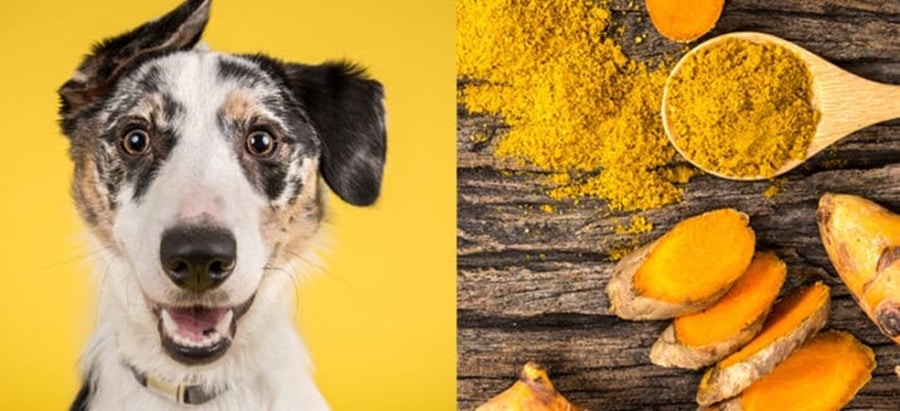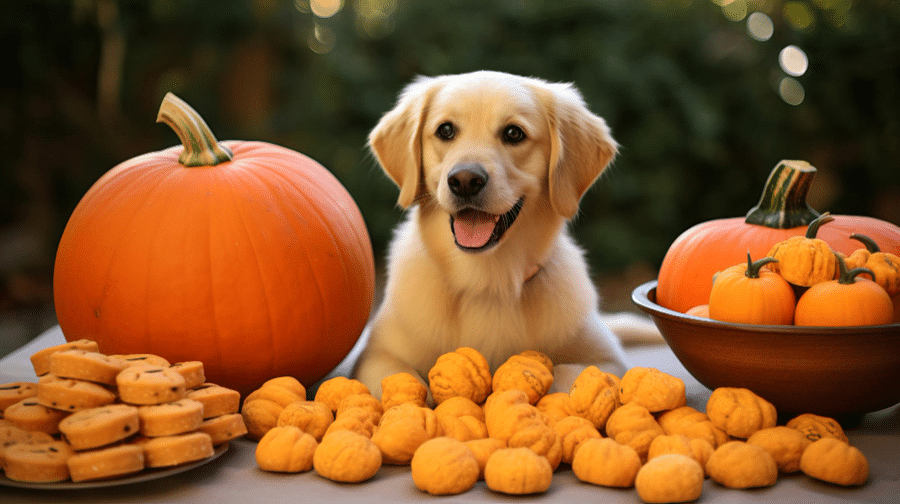Recognizing the significance of a balanced and safe diet for canine companions plays a vital role in maintaining their health and longevity. While it’s easy to assume that most foods safe for human consumption would be harmless to dogs, the reality is often otherwise. Various commonly consumed human foods can pose severe threats to dogs, potentially leading to discomfort, illness, or even death.
It is essential to debunk these misconceptions and make pet owners aware of these potentially hazardous foods, ultimately fostering a safer environment for their beloved pets. This blog post will discuss some of the human foods that can be potentially dangerous for dogs so that pet owners can better understand the importance of a safe diet for their furry friends.
Contents
Chocolate
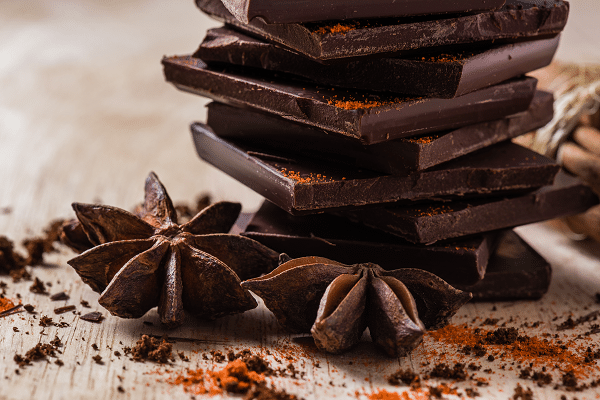
The sweet delight adored by many humans, chocolate, has a significantly different effect on dogs. Containing a substance called theobromine, chocolate is especially harmful to your canine friends. This compound, easily metabolized by humans, remains in a dog’s system much longer, potentially leading to severe toxicity. The symptoms may include vomiting, diarrhea, rapid breathing, increased heart rate, and seizures.
It is not only the dark or unsweetened baker’s chocolate that one needs to be concerned about. Milk chocolate and white chocolate, though containing less theobromine, can still prove toxic if ingested in large quantities. With no safe amount for dogs, it’s crucial to keep chocolate in any form inaccessible to them.
Grapes And Raisins

Grapes and raisins, often considered as healthy snacks for humans, are another dangerous food for dogs. Consumption of these fruits can lead to acute kidney failure in dogs, a condition that could prove fatal if not treated immediately. Initial symptoms may include vomiting, lethargy, and dehydration, eventually leading to a complete shutdown of the kidneys.
While the exact compound causing this toxicity remains unknown, the effects are undeniable and have been documented in multiple veterinary studies. It’s essential to remember that the toxicity isn’t dose-dependent. Even small amounts could be harmful to some dogs, making it essential to entirely avoid these fruits in their diet.
Avocado
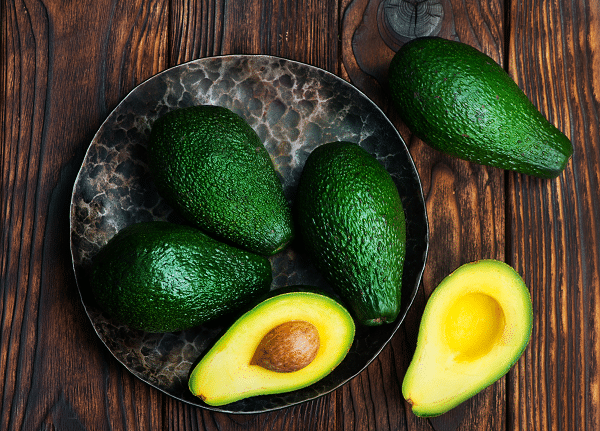
An unexpected addition to the list of dangerous foods for dogs is the avocado. A compound named persin, found in the fruit, leaves, bark, and seed of avocados, can cause vomiting and diarrhea in dogs. Even the pit of the avocado can be a choking hazard or cause a blockage in the gastrointestinal tract, adding to the list of concerns.
For a safe alternative, consider dog-friendly fruits like bananas, apples (without seeds), and blueberries. Ensure they are served in moderation, keeping the pet’s size, weight, and overall health into consideration. Remember, when introducing new foods into a dog’s diet, it’s always advisable to consult with a vet first.
Onions And Garlic
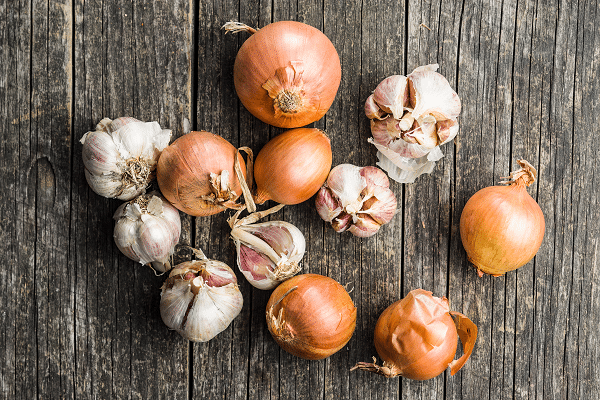
Onions and garlic, common ingredients in human meals, can have a deleterious impact on a dog’s health. They contain thiosulfate, a compound that dogs cannot digest effectively. Thiosulfate can cause oxidative damage to red blood cells, leading to a condition called hemolytic anemia, where the body destroys its own red blood cells faster than it can replace them. Symptoms of this condition may include weakness, lethargy, decreased appetite, pale gums, and even collapse.
Prevention of this condition lies in awareness and careful meal preparation. It is essential to note that thiosulfate is present in all forms of onions and garlic – raw, cooked, and even powdered. As such, pet owners must exercise caution when preparing meals, ensuring they are free of these ingredients, or safely out of their dogs’ reach.
Macadamia Nuts
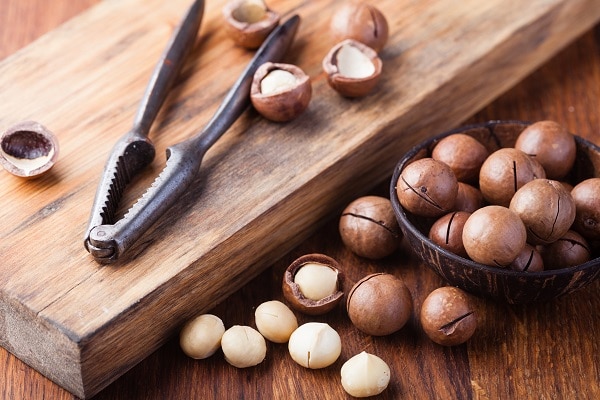
Macadamia nuts, another popular snack for humans, are also on the list of harmful foods for dogs. They contain an unknown toxin that can affect a dog’s nervous system. The exact mechanism of toxicity remains unknown, but ingestion can lead to symptoms such as weakness, particularly in the hind legs, vomiting, tremors, and hyperthermia (increased body temperature).
Keeping these nuts, and foods containing them, away from dogs is a prudent safety measure. It is always important to store food securely and dispose of waste properly to prevent accidental ingestion. Even small amounts of macadamia nuts can cause adverse effects, so it is wise to avoid them entirely in a dog’s diet.
Xylitol

Xylitol, a sugar substitute often found in sugar-free gum, candy, baked goods, and certain types of toothpaste, can be extremely dangerous to dogs. Ingestion of xylitol can cause a rapid and significant release of insulin in dogs, leading to a dramatic drop in blood sugar levels, a condition known as hypoglycemia. This condition can develop as quickly as 10-15 minutes after ingestion and can be life-threatening.
Symptoms of xylitol poisoning include vomiting, loss of coordination, seizures, and in severe cases, liver failure. Therefore, products containing xylitol should always be kept out of a dog’s reach, and pet owners should always read product labels thoroughly before feeding any human food to their dogs.
Conclusion
Understanding the significance of a canine diet and the potential hazards certain human foods can present to dogs is critical for every pet owner. It might be tempting to share snacks with loyal canine companions, but it’s crucial to remember that some of these treats can be harmful or even fatal to them. Equipping oneself with the knowledge of these dangerous foods is the first step towards ensuring a safe and healthy environment for beloved dogs. Spreading this information among other pet owners can also go a long way towards preventing accidental poisonings, making each shared meal a safe and enjoyable experience.

